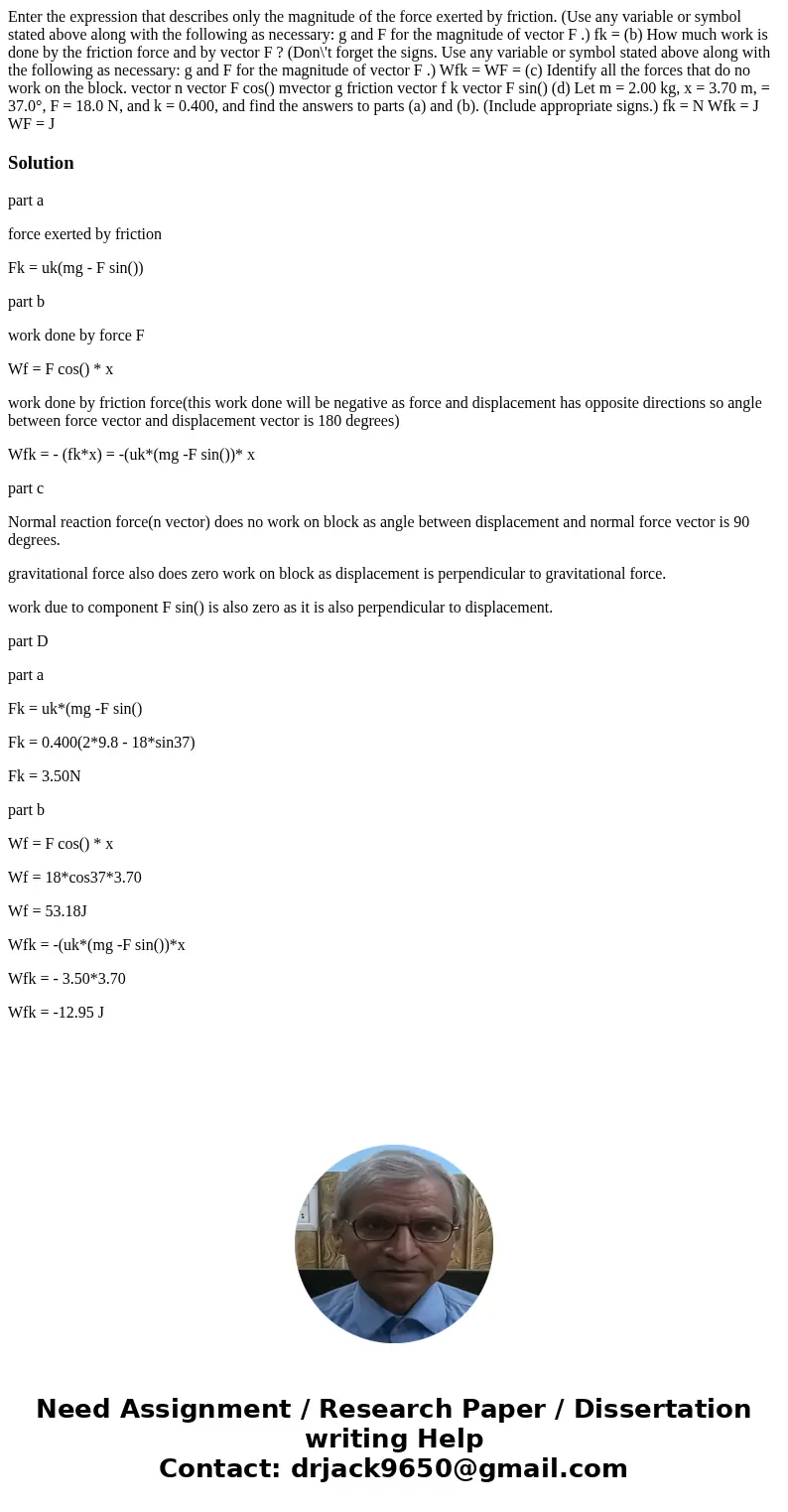Enter the expression that describes only the magnitude of th
Enter the expression that describes only the magnitude of the force exerted by friction. (Use any variable or symbol stated above along with the following as necessary: g and F for the magnitude of vector F .) fk = (b) How much work is done by the friction force and by vector F ? (Don\'t forget the signs. Use any variable or symbol stated above along with the following as necessary: g and F for the magnitude of vector F .) Wfk = WF = (c) Identify all the forces that do no work on the block. vector n vector F cos() mvector g friction vector f k vector F sin() (d) Let m = 2.00 kg, x = 3.70 m, = 37.0°, F = 18.0 N, and k = 0.400, and find the answers to parts (a) and (b). (Include appropriate signs.) fk = N Wfk = J WF = J
Solution
part a
force exerted by friction
Fk = uk(mg - F sin())
part b
work done by force F
Wf = F cos() * x
work done by friction force(this work done will be negative as force and displacement has opposite directions so angle between force vector and displacement vector is 180 degrees)
Wfk = - (fk*x) = -(uk*(mg -F sin())* x
part c
Normal reaction force(n vector) does no work on block as angle between displacement and normal force vector is 90 degrees.
gravitational force also does zero work on block as displacement is perpendicular to gravitational force.
work due to component F sin() is also zero as it is also perpendicular to displacement.
part D
part a
Fk = uk*(mg -F sin()
Fk = 0.400(2*9.8 - 18*sin37)
Fk = 3.50N
part b
Wf = F cos() * x
Wf = 18*cos37*3.70
Wf = 53.18J
Wfk = -(uk*(mg -F sin())*x
Wfk = - 3.50*3.70
Wfk = -12.95 J

 Homework Sourse
Homework Sourse